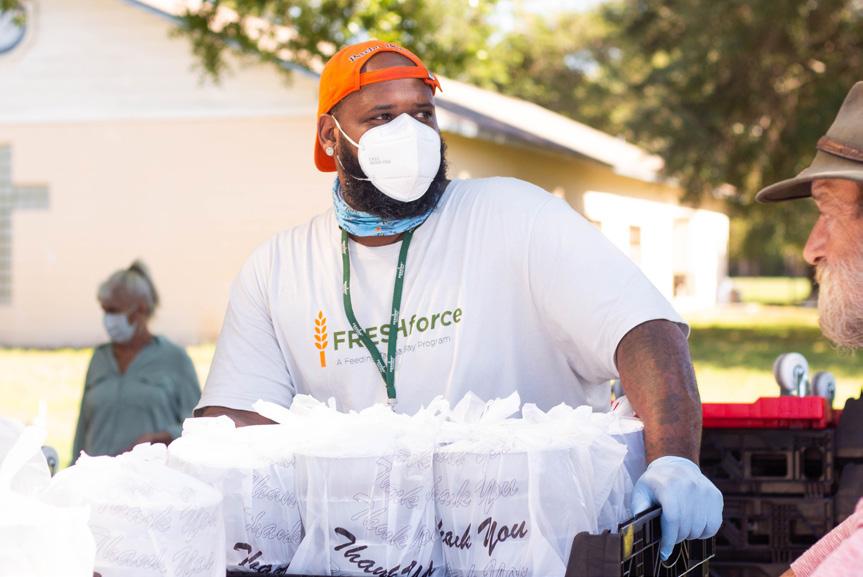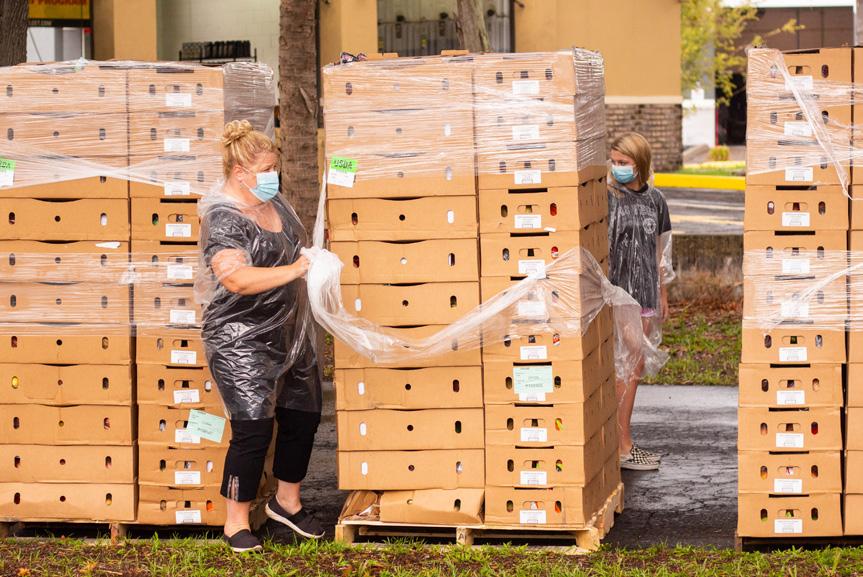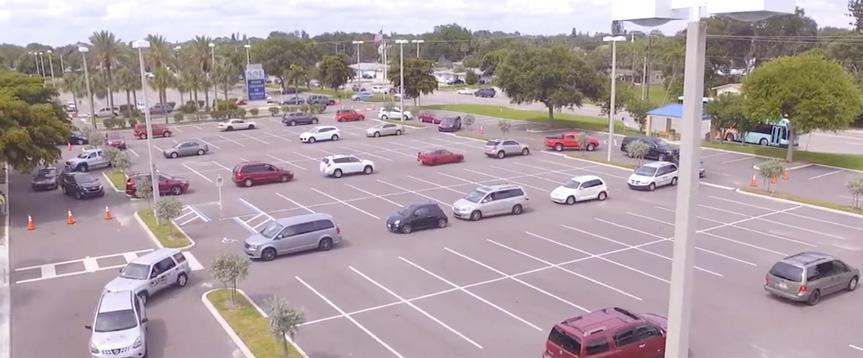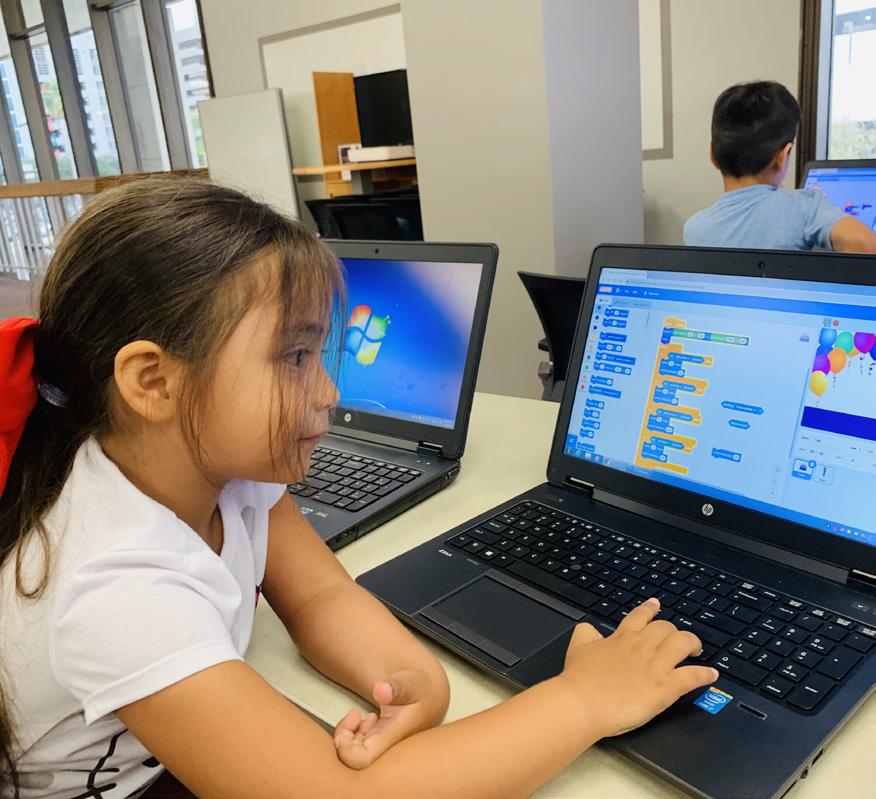
3 minute read
MAKING A DIFFERENCE WITH FEEDING
Feeding Tampa Bay: Today. Tomorrow. For a Lifetime.
by Tara Payor, Ph.D., photos provided by Feeding Tampa Bay
February 2021: COVID remains. Pandemic aftereffects will persist for years, among them, food insecurity for a disproportionate number of families. Feeding Tampa Bay, whose mission is leading the fight against hunger, saw a rise from 600,000 people needing food assistance to over 1 million. February is canned foods month, and Feeding Tampa Bay needs your support. ADAPTING

Jayci Peters, chief communications and culture officer for Feeding Tampa Bay, underscores how abnormal times led FTB to quickly respond and adapt. “Since COVID, many new people entered our world; 70% of them had never utilized a food bank,” she says. “We immediately considered how to continue providing a service that didn’t feel like a cold interaction—how we could do that from afar.”
Calling for more volunteers, collaborating with community businesses and reimagining workspaces proved instrumental to safely navigating an onslaught of COVID barriers. FTB added new shifts and utilized the facility differently so volunteers (totaling almost 40,000) are separated. Volunteers and employees also follow identical health and safety protocols.
MOBILIZING
Given FTB’s need for program expansion, volunteers and donations are critical. “Grocery shortages occurred, so we identified new food sources,” Peters says. “Food insecurity is serious, and we amplified our mobile pantry to a mega pantry.” Currently drive-up instead of walkup, families can safely participate. Items are now packaged outdoors rather than in the warehouse. All ages remain welcome, and smaller groups are a notable change. Some volunteer opportunities, like Muscles and Tetris, appeal to high school and college students.
RESOLVING
Breaking stigmas surrounding food insecurity supports growing both the volunteer force and awareness of FTB services. “COVID revealed food insecurity impacts anyone,” Peters says. “People fine in January 2020 had the rug pulled out from under them by March.”
FTB encompasses more than providing meals at single timepoints. Focus on training programs, workforce development and long-term capability aid FTB’s endeavors against stigmas: “We support our local economy by building up recipients’ capabilities, which puts money back in area grocery stores,” Peters says. Parents can help dismantle stigmas about food through dialogue with children, helping them understand that people in need are neither at fault nor bad. Kids can also raise funds for other children in need as well as become student ambassadors.
“The more opportunities kids have to experience feeding programs, the more they understand people in need are just like them,” says Peters. “When kids are involved with FTB, human connections made support understanding that giving back is important.”
REBUILDING
While distribution of COVID vaccinations offers promise for improvements, the gravity of food insecurity remains. Says Peters: “There’s a long process of recovery and rebuilding. We’re looking far beyond 2021 for building sustainability and providing elevated services to people in need.” If able, consider a financial donation to FTB. Significant need for canned goods persists. Donations of canned fruits and vegetables are key, as FTB values offering nutritional foods. Peanut tuna are vital, as well as breakfast items and boxed meals. of the canned food drive, and all donations go directly to
HOW YOU CAN HELP

Host a virtual food drive:
https://bit.ly/2XiA8mW
Apply to be a student ambassador:
https://bit.ly/35k2Bxi
https://bit.ly/2Ls5q8y butter and canned proteins like low sodium chicken and
COVID undoubtedly impacts volunteerism, so FTB started a virtual food drive that’s always live: “It’s the evolution
View volunteer calendar:
buying food," Peters says.

Storms rage on in 2021. When hands reach out in need, open yours in help. Then, we will calmly weather storms—today, tomorrow and for a lifetime.










